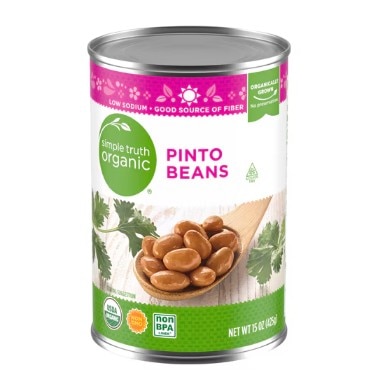If you’ve ever found yourself thinking about food even when you’re not physically hungry, you’re not alone. Many people experience a kind of mental chatter around eating that goes beyond basic hunger cues. These persistent thoughts can feel distracting or even overwhelming, and they don’t always align with the body’s actual need for nourishment. This experience has a name: food noise.
What is Food Noise?
Our bodies have many complex systems that come together to tell us what it needs. These systems let us know through hunger and thirst cues when the body needs fuel. Many factors beyond basic hunger and thirst influence food decisions. This is where the term ‘food noise’ comes from.
Food noise refers to persistent thoughts about food and drink that extend beyond typical hunger and fullness. This term gained traction with the rise of GLP-1 medications, as users reported a quieting of these intrusive thoughts. Unlike regular hunger cues, food noise is often triggered by external or emotional cues, such as surroundings, environment or emotional state.
5 Tips to Quiet Food Noise
Experiencing food noise can feel overwhelming and isolating but know that others also experience this. There are more ways to confront this phenomenon than just medications. Here are some tips from a registered dietitian nutritionist to help quiet the food noise:
1. Eat satiating foods more frequently.
These foods include lean proteins, fiber and unsaturated fats. These nutrients help with feeling fuller throughout the day. The combinations of both hunger hormones and food noise can be overwhelming for some. Using certain food choices to calm the hunger hormones and feel more satiated can be a great tool to tame the chatter. Many of the foods that contain these nutrients can actually help signal the body to naturally release the GLP-1 hormone. Choose more of these foods:
- Fruits and vegetables like avocados, figs, apples, spinach, raisins, kiwi, cabbage and more
- Eggs
- Fish
- Nuts and seeds
- Beans and lentils
- Whole grains like oats and quinoa
- Extra virgin olive oil
- Low or non-fat dairy like Greek yogurt or cottage cheese
2. Practice more mindful eating.
Begin by minimizing opportunities for mindless snacking, such as avoiding eating while watching TV. Instead, try doing another activity with your hands, like knitting or using hand weights. Being more mindful might also look like slowing down during meals, to fully taste and enjoy each bite and stopping when you feel full, rather than finishing everything on your plate. This can also look like recognizing and addressing emotional triggers for eating and finding other coping mechanisms like walking or chatting with a friend or family member.
3. Make a plan for events or gatherings.
First, consider bringing a ‘safe’ dish to gatherings where you anticipate pressure to eat unwanted foods from family members or friends. For restaurant outings, take the stress out of on-the-spot decisions by checking the menu beforehand, when you’re not feeling hungry. If grazing is a social trigger, consume a satiating snack with the recommended nutrients before the event.
4. Meet with a registered dietitian nutritionist for support.
Not only can a registered dietitian help with recognition of food noise, but they can also assist with making small, personalized solutions and goals. You don’t have to face this challenge alone, and a registered dietitian can be there for support, guidance and accountability.
5. Take a break from tracking and restrictive dieting.
Does a weight loss journey have you tracking every item of food eaten? If months of doing this is feeling consuming or draining, take a break! A registered dietitian can advise on what eating at or around maintenance calories looks like and take a break from the tracking for about a week or longer until you feel less stress around the process. You will come out of the week feeling refreshed and ready to continue on a healthful eating journey. Do this every few months or as much as needed to keep motivation up. Additionally, avoid restrictive diets that may take the joy out of food.
These are just a few of many tools in your toolbox to assist in quieting the mental chatter of food noise. Schedule an appointment with a Kroger Health registered dietitian, our nutrition experts, to make a more individualized plan to quiet the food noise, for recipe and product ideas from Vitacost and Kroger and to make more healthful choices. Include other healthcare practitioners, like a primary care physician and a psychologist, in your care plan for more support and well-rounded care.




